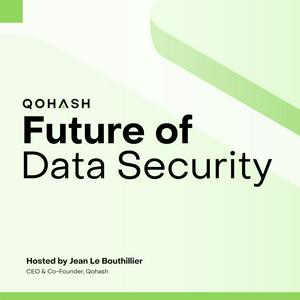33 episodes
EP 29 — Age of Learning's Carl Stern on Why Certifications Are Side Effects, Not Final Goals
2026/2/10 | 29 mins.Carl Stern, VP of Information Security at Age of Learning, explains why forcing controls into place without executive alignment guarantees you'll fight uphill battles every single day, as people begin to see security as a blocker rather than a business enabler. Instead, he starts with identifying crown jewels and acceptable risk levels before selecting any frameworks or tools, ensuring the program fits company culture instead of working against it.
He also asserts that certifications like HITRUST and SOC 2 validate you're already operating securely; the real program is the daily processes people follow because they understand why, not compliance theatre. Carl also argues the cybersecurity industry exists at its current scale because of a systemic failure: companies ship insecure software without liability, pushing security costs downstream. Most breaches exploit preventable defects that should never reach production, not sophisticated zero-days.
Topics discussed:
Building security programs from scratch versus inheriting existing programs and why executive alignment prevents daily uphill battles
Treating certifications as validation of operational security rather than the primary program goal
Pairing administrative controls with technical monitoring to establish baselines before enforcement for unstructured data security policies
Applying three-part investment calculus for lean teams: measurable risk reduction, manual work automation, and crown jewel protection
Calculating true cost of 24/7 internal SOC coverage including shift staffing, turnover, training, and tooling versus managed services
Why attack patterns remain consistent across healthcare, education, gaming, and retail despite different compliance requirements
Explaining how AI lowers the barrier for exploit development and expands zero-day risk beyond traditional high-value enterprise targets
Arguing that the cybersecurity industry exists at current scale because companies ship insecure software without liability, pushing costs downstream- André Boucher, SVP Technology and Information Security (CTO/CISO) at National Bank of Canada, managed the transition from commanding Canadian Forces Cyber Command to leading security at a systemically important financial institution by recognizing that governance expertise matters more than technical depth at scale. His approach to shadow AI involves enabling experimentation early with secure platforms that business teams actually prefer, reducing the appeal of unauthorized tools. Rather than aggressive detection that drives behavior underground, they created environments where innovation happens within guardrails. This shifts security from adversarial to collaborative, treating 31,000 employees as team participants rather than risks to manage.
Andre emphasizes that data inventory across structured and unstructured environments remains the hardest unsolved problem, not because organizations lack tools but because they haven't achieved ecosystem maturity around taxonomy and classification. He explains why third-party risk management is reaching crisis levels as major vendors embed AI features without notice or transparency, creating blind spots in supply chains that regulatory frameworks can't yet address.
Topics discussed:
The translation of military governance and strategy frameworks into private sector security at systemically important financial institutions.
Shadow AI management through platform enablement and secure experimentation rather than detection and prevention tactics.
Data inventory and classification as the foundational challenge most organizations underestimate despite its criticality for AI governance.
The board strategy mandate versus grassroots adoption pressure dynamic and how platform teams bridge the gap without creating friction.
Third-party risk amplification as vendors embed AI features without transparency, notice, or updated contractual language.
How awareness training reaches its limits when synthetic actors become indistinguishable from humans in video communications.
AI use cases in security tooling focused on modeling normal behavior and reducing triage burden rather than autonomous response.
Building high-performing security teams around ethics, mission, and non-linear career experience rather than purely technical credentials.
Treating employees as security team participants at scale and how that shifts organizational dynamics from adversarial to collaborative. - When manufacturers discover their IP and other valuable data points have been encrypted or deleted, the company faces existential risk. Paul Knight, VP Information Technology & CISO at Turntide, explains why OT security operates under fundamentally different constraints than IT: you can't patch legacy systems when regulatory requirements lock down production lines, and manufacturer obsolescence means the only "upgrade" path is a pricey machine replacement. His zero trust implementation focuses on compensating controls around unpatchable assets rather than attempting wholesale modernization. Paul's crown jewel methodology starts with regulatory requirements and threat actor motivations specific to manufacturing.
Paul also touches on how AI testing delivered 300-400% speed improvements analyzing embedded firmware logs and identifying real-time patterns in test data, eliminating the Monday-morning bottleneck of manual log review. Their NDA automation failed on consistency, revealing the current boundary: AI handles quantitative pattern detection but can't replace judgment-dependent tasks. Paul warns the security industry remains in the "sprinkling stage" where vendors add superficial AI features, while the real shift comes when threat actors weaponize sophisticated models, creating an arms race where defensive operations must match offensive AI processing power.
Topics discussed:
Implementing zero trust architecture around unpatchable legacy OT systems when regulatory requirements prevent upgrades
Identifying manufacturing crown jewels through threat actor motivation analysis, like production stoppage and CNC instruction sets
Achieving 300-400% faster embedded firmware testing cycles using AI for real-time log analysis and pattern detection in test data
Understanding AI consistency failures in legal document automation where 80% accuracy creates liability rather than delivering value
Applying compensating security controls when manufacturer obsolescence makes the only upgrade path a costly replacement
Navigating the current "sprinkling stage" of security AI where vendors add superficial features rather than reimagining defensive operations
Preparing for AI-driven threat landscape evolution where offensive operations force defensive systems to match sophisticated model processing power
Building trust frameworks for AI adoption when executives question data exposure risks from systems requiring high-level access EP 26 — Handshake's Rupa Parameswaran on Mapping Happy Paths to Catch AI Data Leakage
2025/12/19 | 24 mins.Rupa Parameswaran, VP of Security & IT at Handshake, tackles AI security by starting with mapping happy paths: document every legitimate route for accessing, adding, moving, and removing your crown jewels, then flag everything outside those paths. When vendors like ChatGPT inadvertently get connected to an entire workspace instead of individual accounts (scope creep that she's witnessed firsthand), these baselines become your detection layer. She suggests building lightweight apps that crawl vendor sites for consent and control changes, addressing the reality that nobody reads those policy update emails.
Rupa also reflects on the data labeling bottlenecks that block AI adoption at scale. Most organizations can't safely connect AI tools to Google Drive or OneDrive because they lack visibility into what sensitive data exists across their corpus. Regulated industries handle this better, not because they're more sophisticated, but because compliance requirements force the discovery work. Her recommendation for organizations hitting this wall is self-hosted solutions contained within a single cloud provider rather than reverting to bare metal infrastructure. The shift treats security as quality engineering, making just-in-time access and audit trails the default path, not an impediment to velocity.
Topics discussed:
Mapping happy paths for accessing, adding, moving, and removing crown jewels to establish baselines for anomaly detection systems
Building lightweight applications that crawl vendor websites to automatically detect consent and control changes in third-party tools
Understanding why data labeling and discovery across unstructured corpus databases blocks AI adoption beyond pilot stage deployments
Implementing just-in-time access controls and audit trails as default engineering paths rather than friction points for development velocity
Evaluating self-hosted AI solutions within single cloud providers versus bare metal infrastructure for containing data exposure risks
Preventing inadvertent workspace-wide AI integrations when individual account connections get accidentally expanded in scope during rollouts
Treating security as a pillar of quality engineering to make secure options easier than insecure alternatives for teams
Addressing authenticity and provenance challenges in AI-curated data where validation of truthfulness becomes nearly impossible currentlyEP 25 — Cybersecurity Executive Arvind Raman on Hand-in-Glove CDO-CISO Partnership
2025/12/02 | 21 mins.Arvind Raman — Board-level Cybersecurity Executive | CISO roles at Blackberry & Mitel, rebuilt cybersecurity from a compliance function into a business differentiator. His approach reveals why organizations focusing solely on tools miss the fundamental issue: without clear data ownership and accountability, no technology stack solves visibility and control problems. He identifies the critical blind spot that too many enterprises overlook in their rush to adopt AI and cloud services without proper governance frameworks, particularly around well-meaning employees who create insider risks through improper data usage rather than malicious intent.
The convergence of cyber risk and resilience is reshaping CISO responsibilities beyond traditional security boundaries. Arvind explains why quantum readiness requires faster encryption agility than most organizations anticipate, and how machine-speed governance will need to operate in real time, embedded directly into tech stacks and business objectives by 2030.
Topics discussed:
How cybersecurity evolved from compliance checkboxes to business enablement and resilience strategies that boards actually care about.
The critical blind spots in enterprise data security, including unclear data ownership, accountability gaps, and insider risks.
How shadow AI creates different risks than shadow IT, requiring governance committees and internal alternatives, not prohibition.
Strategies for balancing security with innovation speed by baking security into development pipelines and business objectives.
Why AI functions as both threat vector and defensive tool, particularly in detection, response, and autonomous SOC capabilities.
The importance of data governance frameworks that define what data can enter AI models, with proper versioning, testing, and monitoring.
How quantum computing readiness requires encryption agility much faster than organizations anticipate.
The emerging convergence of cyber risk and resilience, eliminating silos between IT security and business continuity.
Why optimal CISO reporting structures depend on organizational maturity and industry.
The rise of Chief Data Officers and their partnerships with CISOs for managing data sprawl, ownership, and holistic risk governance.
More Technology podcasts
Trending Technology podcasts
About Future of Data Security
Welcome to Future of Data Security, the podcast where industry leaders come together to share their insights, lessons, and strategies on the forefront of data security. Each episode features in-depth interviews with top CISOs and security experts who discuss real-world solutions, innovations, and the latest technologies that are shaping the future of cybersecurity across various industries. Join us to gain actionable advice and stay ahead in the ever-evolving world of data security.
Podcast websiteListen to Future of Data Security, The AI Daily Brief: Artificial Intelligence News and Analysis and many other podcasts from around the world with the radio.net app

Get the free radio.net app
- Stations and podcasts to bookmark
- Stream via Wi-Fi or Bluetooth
- Supports Carplay & Android Auto
- Many other app features
Get the free radio.net app
- Stations and podcasts to bookmark
- Stream via Wi-Fi or Bluetooth
- Supports Carplay & Android Auto
- Many other app features


Future of Data Security
Scan code,
download the app,
start listening.
download the app,
start listening.




































